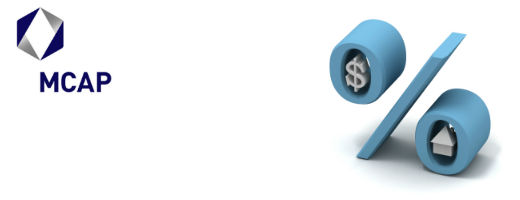This week and for the next several weeks, our regularly-scheduled Mortgage Monday blog posts will feature a 4-part series courtesy of MCAP on how and why mortgages are priced the way they are. If you have some basic financial knowledge, it shouldn’t be overly complex (that being said, these next couple of posts aren’t for beginners, either). Either way, if you have any questions, ask them in the comments below and I’ll do my best to answer them.
Part 1: The Bond Market and Fixed Income Yields – How Does it Really Work?
The first thing we need to understand about the bond market is the concept of “yield”. The yield of a bond is the income, the earning, the profit – the reason why an investor would invest. With a bond, yield is a function of two things: the interest the bond pays and the price the investor pays for the bond.
Think of this example:
[box style=”rounded” border=”full”]A few years ago, Mary bought a new bond with a face value or principal amount of $100 which pays annual interest of $10. Mary’s yield is 10%. Interest rates in the economy have decreased since Mary bought her bond and, today, a similar new $100 bond only pays annual interest of $5 (a 5% yield). Mary must be happy to have a bond with a yield of 10% when the current yield is now only 5%, right? If Mary decides to sell her bond, she will ask for $200 for it since she knows that investors today are only earning a yield of 5%. Her bond still pays annual interest of $10 to whoever owns it, so the new investor who pays $200 for her bond, will earn a yield of 5%.[/box]
Bonds pay a fixed rate of interest until they mature. Bond prices, and therefore bond yields, change all the time.
Have you ever noticed that reporters, when trying to explain the reason why the bond market influences mortgage rates, will often say “because mortgages are financed through the bond market“? Financed through the bond market? While that statement is not entirely true, it can help us understand the relationship between mortgages rates and the bond market.
The bond market (and we are referring to Government of Canada bonds) operates on the simple basis of supply and demand. We have all heard, especially recently, about the government’s operating deficits and overall debt. When the government takes in less than it spends, it finances the shortfall mostly by issuing bonds (and other short term instruments such as Treasury Bills). Investors buy these bonds when they are first issued but there is also a vast secondary market which allows investors to buy and sell existing government bonds before they mature. As with anything in the economy, increased demand results in higher prices. Higher bond prices result in lower bond yields since the interest rate of each bond is fixed when it is issued (like Mary’s example above). Demand for government bonds tends to increase during times of uncertainty and when investors see increased risk in the stock market – like they probably do now. When the economy recovers and the outlook for corporate earnings brightens, investors tend to return to the stock market. Demand for bonds falls off, bond prices are pushed down and bond yields are pushed up.
Government bond yields are widely followed and are used as a reference point or a benchmark for other fixed rate investments. Government bonds are considered to be the safest and the most liquid (easy and fast to sell if necessary) fixed income investments available in Canada. They therefore provide the lowest returns. Other fixed rate investments are evaluated in comparison to government bonds and, since government bonds return the lowest yields, yields on other investments are always higher. The difference is often referred to as the “spread”. Using government bonds as a benchmark therefore provides a base frame of reference for valuation of other fixed rate investments – like mortgages.
